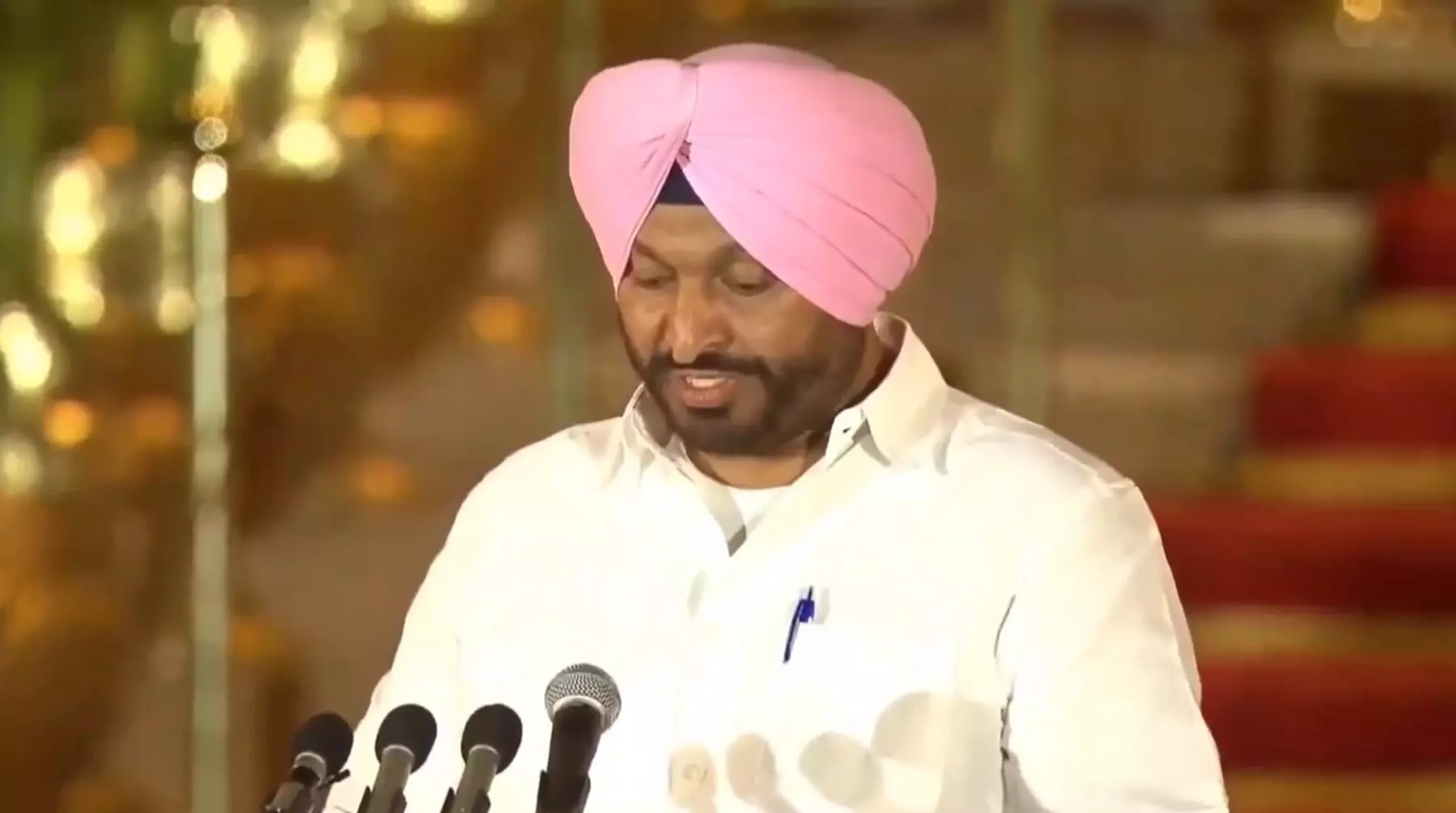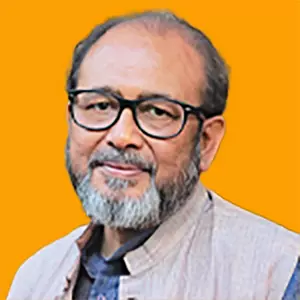
- Home
- India
- World
- Premium
- THE FEDERAL SPECIAL
- Analysis
- States
- Perspective
- Videos
- Sports
- Education
- Entertainment
- Elections
- Features
- Health
- Business
- Series
- In memoriam: Sheikh Mujibur Rahman
- Bishnoi's Men
- NEET TANGLE
- Economy Series
- Earth Day
- Kashmir’s Frozen Turbulence
- India@75
- The legend of Ramjanmabhoomi
- Liberalisation@30
- How to tame a dragon
- Celebrating biodiversity
- Farm Matters
- 50 days of solitude
- Bringing Migrants Home
- Budget 2020
- Jharkhand Votes
- The Federal Investigates
- The Federal Impact
- Vanishing Sand
- Gandhi @ 150
- Andhra Today
- Field report
- Operation Gulmarg
- Pandemic @1 Mn in India
- The Federal Year-End
- The Zero Year
- Science
- Brand studio
- Newsletter
- Elections 2024
- Events
- Home
- IndiaIndia
- World
- Analysis
- StatesStates
- PerspectivePerspective
- VideosVideos
- Sports
- Education
- Entertainment
- ElectionsElections
- Features
- Health
- BusinessBusiness
- Premium
- Loading...
Premium - Events

RSS would never approve of ministerial berth for a leader – an ex-Congressman at that – who lost an election; Vajpayee toed the line, but Modi wouldn't
The newly baptised Bharatiya Janata Party (BJP) member from Punjab, Ravneet Singh Bittu, surprisingly took oath as Minister of State in the National Democratic Alliance (NDA) government. His appointment was unexpected because he lost the 2024 Lok Sabha polls from Punjab’s Ludhiana.
Another surprising factor in the unanticipated induction of Bittu in the Union Council of Ministers is that he is a former Congress leader from Punjab. He had been elected thrice to the Lok Sabha – in 2009, 2014, and 2019 – twice from Ludhiana, and once from Anandpur Sahib.
Bittu became a member of the Congress at a young age and entered the party through the Youth Congress. He is also a scion of a long-time “Congress family” and, as the grandson of Beant Singh, the Punjab Chief Minister who was killed by terrorists in 1995, was projected as a frontline campaigner against separatist groups.
Dissensions within
In the wake of the BJP’s poor performance this time compared to 2014 and 2019, when the party secured a comfortable parliamentary majority, it was pointed out that internal rumblings were among the factors behind the party’s Lok Sabha tally slipping by 63 seats from the 303 seats it won in 2019.
The dissensions within were triggered by the fact that almost one-third of the total BJP nominations for contesting the Lok Sabha polls had been given to those who defected from other parties.
This dashed the hopes of several leaders who spent years in the party and rose vertically within its hierarchy.
Stepping out of RSS’s moral frame
The BJP has in recent years become less mindful of principled stances and become a more opportunistic party, with the acquisition of political power becoming it primary objective. Previously, the party consciously remained within the limits of the moral frame that its ideological fountainhead, the Rashtriya Swayamsevak Sangh (RSS), believed in.
As a result, through the late 1980s and the early 1990s, when the BJP made a breakthrough and became a mainstream political party, it positioned itself as a “party with a difference”, which underscored that it was more principled than the wanton Congress or other non-communist parties.
Although the BJP began stepping out beyond this moral frame during its first stint in government during 1998-2004 with Atal Bihari Vajpayee as Prime Minister, it is only post-2014 that the party has virtually consigned principles, and the stance drawn from it, to the dustbin.
The Vajpayee era
Bittu’s induction is reflective of changed equations within the Sangh Parivar, too. To comprehend this, it is worth recalling an episode in 1998, when the BJP eventually decided that any leader who failed to win the Lok Sabha election would not be inducted into the Union Council of Ministers and remain outside till she/he got re-elected from either of the two Houses.
During the 1998 Lok Sabha elections, which had to be called before the expected conclusion of the 11th Lok Sabha’s tenure in 2001, the BJP’s prime ministerial candidate, Atal Bihari Vajpayee, did not hide his dependence on senior party leaders Jaswant Singh and Pramod Mahajan.
However, it so happened that both of them lost their elections from Chittorgarh, Rajasthan and Mumbai North East, respectively. Despite that, Vajpayee had all intentions of inducting them into his Council of Ministers, until a dramatic incident prevented this.
The directive from Nagpur
In March 1998, while giving finishing touches to his work for the next day’s oath-taking ceremony, Vajpayee had a late-night visitor at his doorstep: RSS general secretary KS Sudarshan.
Sudarshan conveyed Big Brother’s desire that Jaswant Singh and Pramod Mahajan be excluded from the Union Cabinet. The diktat specified that Yashwant Sinha be made finance minister, and Vajpayee complied.
The reason provided by Sudarshan was that both of them had lost the Lok Sabha elections and inducting them into the Council of Ministers would set a bad precedent, besides also sullying BJP’s image of being a principled party.
The decision to drop their names was hurriedly taken as the BJP and Vajpayee did not wish to disobey the directive from Nagpur. Not only did the BJP have just 182 members in Lok Sabha, but Vajpayee was far more respectful towards the RSS and its principles.
The Modi way
In contrast, Modi is far more non-consultative, even in political matters. Even as Gujarat Chief Minister, he had frequent run-ins with the RSS leaders of the state, who expected him to consult them on key decisions.
Eventually, Modi’s way prevailed and he pressurised the RSS brass in Nagpur to transfer the RSS chief of the time, Manmohan Vaidya, from Ahmedabad to Chennai.
In the course of the 2024 elections, ties between the RSS and the BJP were awkward and tense.
From the beginning, it was evident that the famed karyakartas (functionaries or volunteers) of the RSS were not stepping out to campaign for the BJP candidates. This resulted in the virtual collapse of the door-to-door campaign of the ideological fraternity even though it was their hallmark during election time.
A 'capable' BJP
Later, as the campaign closed in towards the last phases, BJP president JP Nadda made the contentious statement that the BJP did not need the support of the RSS any longer. He elaborated that the party had grown from the time it needed the RSS and is now saksham (capable), and runs its own affairs.
The RSS, he said, was merely an “ideological front” and does its own work.
The BJP president specifically stated: “Woh ideologically apna kaam karte hain, hum apna (they do their work along ideological lines, and we do ours). We are managing our affairs in our own way. And that’s what political parties should do.”
Modi and the party have obviously not consulted the RSS brass before constituting the Council of Ministers because, if this had been done, questions would have been certainly asked regarding Bittu’s inclusion and its urgency.
Onus on BJP
There is no doubt that if the BJP engages in an honest appraisal of the verdict, its current ties with the RSS would come in for discussion.
The onus of ironing out the creases in the ties is obviously the BJP’s. But, for that, the initiative has to be taken by Modi. No one else in the BJP has the authority to approach the RSS brass and normalise ties once again.
But Bittu’s induction, although he is just a Minister of State — in the ministries of Food Processing Industries, and Railways — is indicative of primacy being given to widening the electoral footprint of the party even at the cost of being relatively less principled when compared to its position a quarter of a century ago.
The BJP leadership certainly considers that Bittu’s elevation will enable the party to carve out a distinct supporter base now that it is on its own, and there is no saying when its ties with the Akali Dal will improve.
Now and then
Mahajan and Jaswant Singh eventually became ministers within months, after they were brought into Parliament through the Rajya Sabha route, the same one that will have to be used for Bittu. Till that time, both held non-ministerial positions and were available for consultations by Vajpayee and the other party leaders.
While Mahajan was appointed an adviser to the Prime Minister, Jaswant Singh was Deputy Chairman of the Planning Commission.
Bittu, too, could have been appointed to a specially created post and could have offered the same advice to the party for its Punjab strategy. He could have been brought into the government after getting elected to the Rajya Sabha.
This has not been done because the party pays less heed to principles than the BJP of pre-Modi era.
(The Federal seeks to present views and opinions from all sides of the spectrum. The information, ideas or opinions in the articles are of the author and do not necessarily reflect the views of The Federal)


